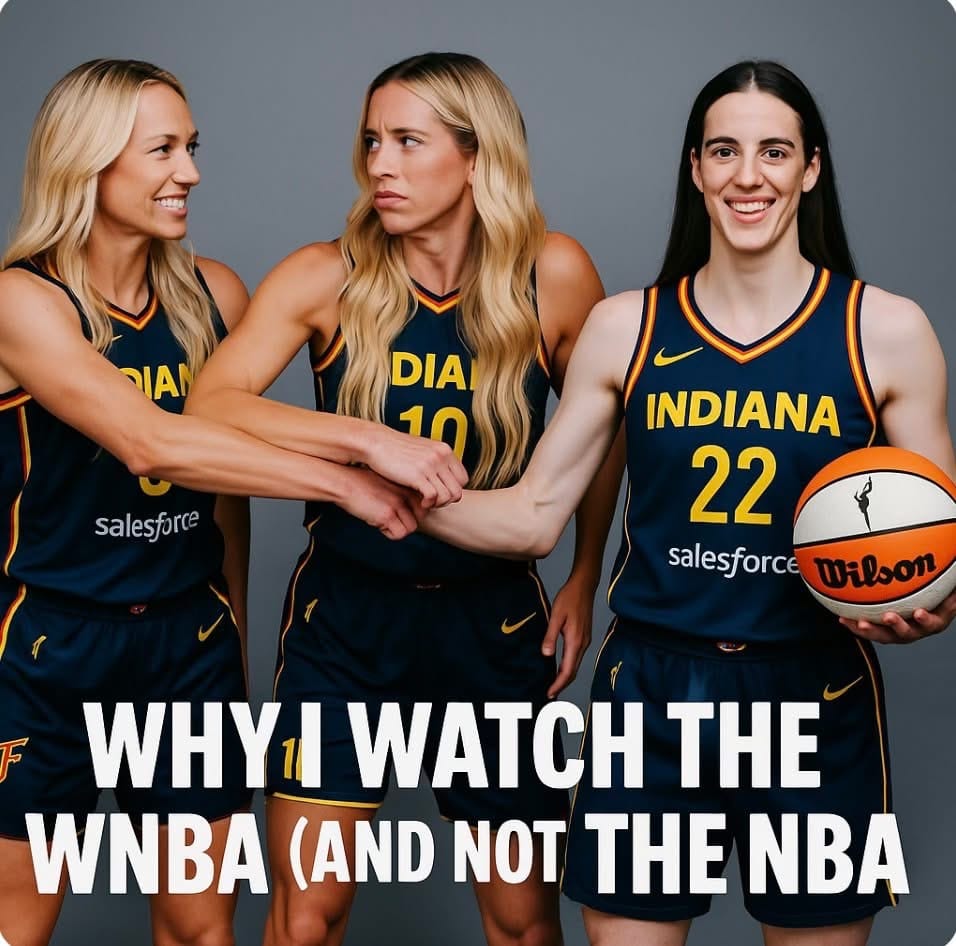

By Dr. Tim Orr
For most of my life, the NBA was the gold standard. It had the glitz, the rivalries, the high-flying dunks, and the cultural spotlight. But at some point, I realized I was no longer tuning in with the same excitement. The game felt different—detached, overly commercialized, and lacking the grit that once made it magnetic. Somewhere along the way, the artistry gave way to spectacle. It was basketball, yes—but not the kind I fell in love with. Then something unexpected happened: I started watching the WNBA.
And it didn’t start with me—it started with my daughter. Last year, I encouraged her to start following the WNBA. We live in Indiana, so it felt natural to root for the Indiana Fever. At the time, it was more about giving her a strong example of competitive women’s sports, not something I planned to follow myself. But I started sitting down to watch games with her, and slowly, I got pulled in. The skill, the teamwork, the intensity—it wasn’t just decent basketball. It was great basketball.
We both quickly became Caitlin Clark fans—how could we not? Her deep shooting range, elite vision, and confident swagger made her instantly electrifying to watch. But something shifted for me this season during a heated game. An opposing player went after Caitlin, and Sophie Cunningham stepped in without hesitation to defend her. It was more than just a moment—it was a display of loyalty, grit, and leadership. That moment reshaped how I saw the league and its players. Caitlin remained a favorite, but Sophie Cunningham became my number one.
Maybe it was her no-nonsense edge. Maybe it was her Midwestern roots that I instinctively connected with. But something in Sophie’s toughness and the way she carried herself reminded me of how basketball used to be played—before ego and theatrics took center stage. Watching her, I wasn’t just witnessing a strong player. I was reconnecting with the sport I had grown up loving. And that took me straight back to Terre Haute.
Growing up in Terre Haute during Larry Bird’s Indiana State days, I was captivated by the kind of basketball he represented. It wasn’t flashy, but it was smart. It wasn’t about the spotlight—it was about the team. Larry Bird played with grit, court vision, and intensity that elevated everyone around him. He didn’t just play the game—he understood it. That was the foundation of my love for basketball, and it’s exactly what I see reflected in the WNBA today.
The WNBA still values the elements that made basketball great in the first place. Ball movement, pick-and-roll execution, help defense, and spacing aren’t afterthoughts—they’re at the center of the game. Every player on the floor is engaged on both ends, relying on each other to succeed. You don’t see the same isolation-heavy sets or ego-driven antics that dominate much of the NBA. What you do see is basketball that rewards intelligence, selflessness, and strategy. It’s not just fun to watch—it’s refreshing.
And there’s something deeply admirable about how these women play the game. They don’t have the luxury of chartered jets or billion-dollar media deals. Their passion for the game is tested in ways that most professional athletes never have to face. They grind. They show up. They put their bodies on the line—not for fame, but because they love the game. Every rebound, every dive for a loose ball, every assist matters.
These aren’t just athletes—they’re competitors, leaders, and role models. And unlike the often overproduced spectacle of the NBA, the WNBA still feels connected to real life. The players are accessible. The fans are passionate and invested. The community that surrounds the league is smaller, but more intimate. And that creates a depth of connection that feels genuine rather than manufactured. In the W, you don’t just watch—you belong.
Here’s the thing: I’m not a progressive. I don’t watch the WNBA because I’m trying to push for equity or make some kind of ideological statement. I’m not checking boxes. I don’t see the world primarily through the lens of representation. I’m watching because the basketball is just better—more disciplined, more team-oriented, more grounded. It reminds me of what basketball used to be.
So no, I’m not watching to make a point. I’m not trying to be trendy. I’m not “supporting women’s sports” to earn some kind of moral badge. I’m watching because I believe in rewarding excellence—on any court, in any uniform. And what I’ve found in the WNBA is a version of basketball that’s honest, gritty, and beautiful to watch.
I like the WNBA because I like their brand of basketball better.
